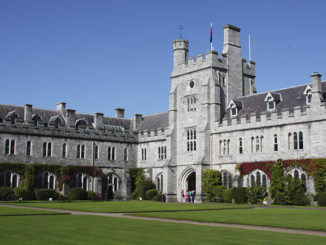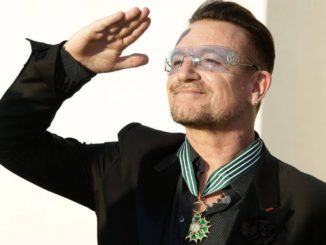
[dropcap]With[/dropcap] equality and diversity as his main focus, the incumbent President Michael D. Higgins faces another round of voting to secure a second term.
Higgins, who has served as Ireland’s president since 2011, is the most popular candidate in the running, but a candidate that is facing new challenges if re-elected.
When asked why he is running again, Higgins said that the challenges for the next seven years are different, mentioning issues of climate change, Brexit and housing.
“I will next year, if I’m back in office, make proposals to maybe, for example … I don’t think we tell people sufficiently what we do in the Áras in terms of the amount of sheer business and activity we do,” Higgins said during an interview with Ireland AM.
President Higgins began an academic career in the 1960s teaching sociology in the US and Ireland but by the end of the decade began working for the Labour party and served as a senator in the 1980s.
Higgins began representing Galway West in the Dáil from 1987 until his presidency in 2011, during this time he also served as minister for arts, culture and the Gaelteacht in the 1990s.
He is a passionate advocate of the Irish language and heritage, as a fluent Irish speaker and published poet, Higgins’s campaign slogan states that he is a “president for us all.”
The president’s manifesto sets out four broad themes, the first of which is equality and inclusion. In this, he includes diversity and marginal people.
The second is sustainable communities, in which he aims to combat climate change and improve the environment.
The third is his handling of centenary celebrations, most notably his organisation of the 1916 rising celebrations. He aims here to commemorate the first Dáil in 1919 and reviewing the changed society since.
The final theme is his role as a representative of Ireland abroad as he aims to make Ireland a champion in human rights.
It is these themes that he endorses that he and his campaign believe set him aside from the other candidates.
Despite this, Higgins has been criticised recently for the €317,000 annual allowance that has no state oversight.
He has defended this stating that it has been in existence since 1938 and used for events held in the Áras.
“What I can absolutely say is that everything was spent in accordance with the 1938 Act,” he said.
“First of all, I think you should be very, very clear about this. At the end of a presidential period anything unspent goes back to the exchequer.”
By Ellen Fitzpatrick
Image credit: The Irish Labour Party



